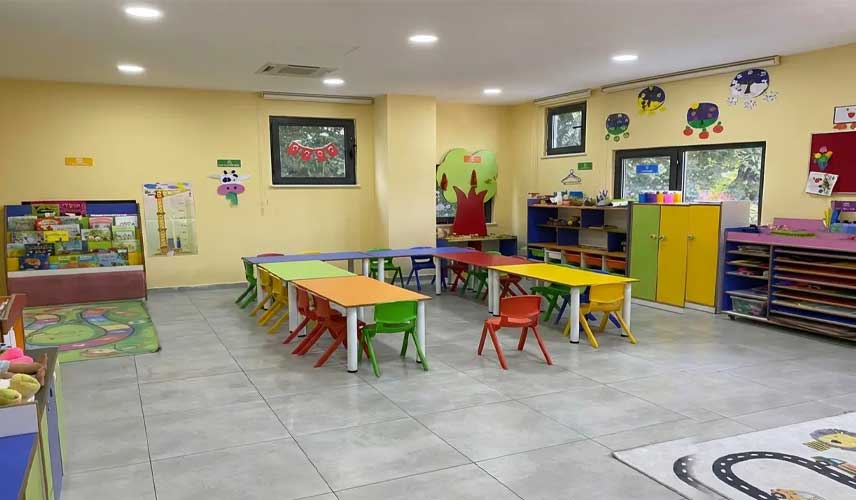
15 Life Skills Your Teen Should Acquire

As a parent, one of the important tasks you need to undertake is to equip your child, who is on the path to adulthood, with the skills they will need to cope with life independently. Your child, who has graduated from high school, may live in another city for university education, may want to try their luck abroad, or there may be other similar situations. It is essential to ensure that young people are ready to live independently in such circumstances. Here are the life skills that adolescents need to acquire:
Practical Life Skills
1. Time Management
Be a positive role model for your child to help them prioritize and cope with distractions. Teach them how to use their time in the best and most efficient way for the things they need to do.
2. Budget Management
Give them responsibilities, such as managing their own allowance from a young age, so they can use their money wisely. Try to make them a conscious consumer.
3. Healthy Eating
Children need to develop proper eating habits at an early age. Go grocery shopping with your child. Assign age-appropriate tasks while preparing meals and setting the table at home. Emphasize the importance of a rich and balanced diet consisting of vegetables, fruits, and other healthy foods. Teach them basic cooking techniques.
4. Working Efficiently
Your child may not take geometry classes forever, but knowing how to learn will benefit them throughout their life. Encourage them to enjoy reading. Teach them ways to understand the main themes of any subject and how to test themselves.
5. Cleanliness
Children who help with household chores and take responsibility in this regard are more likely to take good care of their living spaces and personal belongings when living in a dormitory, student house, or alone. Teach your children how to use the vacuum cleaner and washing machine, and how to dust.
6. Ensuring Their Own Safety
Discuss with your child the necessity of securing themselves against risks they may encounter both online and in social life. Be careful to give logical advice and, if possible, share examples from your own experiences to enhance the impact of what you say.
7. Coping with Emergencies
Teach your child the basic things to do to avoid common emergencies such as small household accidents, burns, and traffic accidents, and what to do when such situations occur.
Social and Psychological Life Skills
1. Clarify Core Values
The values your child adopts will guide their behavior. Provide them with good guidance so they can articulate their beliefs and reflect them in their lives.
2. Stress Management
The ability to understand their own emotions, thoughts, and inner processes helps your child protect themselves from depression and anxiety. Engaging in physical exercises or working on a hobby also helps them relax.
3. Social Relationships
Supportive relationships are crucial for health and well-being. Coach your child in choosing and making friends.
4. Being Generous and Sharing
Young people who share their knowledge and skills with others are more likely to succeed. Explain to your child the beauty and abundance of sharing, and encourage them to be someone who does so voluntarily.
5. Phone Etiquette
Even if your child spends a large part of their waking hours talking on the phone, they may not communicate effectively. Teach them how to introduce themselves on the phone and speak in a clear voice. Practice scenarios like making a phone appointment or calling a teacher.
6. Face-to-Face Communication
Today's youth may find it easier to talk on social media platforms than in real life. To help your child express themselves in person and speak confidently, frequently sit down for family meals and organize family activities. Make it a rule that no technological devices are present at the dining table.
7. Self-Confidence
Help your child develop a healthy level of self-confidence and defend themselves assertively when necessary. Knowing how to share their wants and needs with others makes it easier for them to achieve their goals.
8. Focus
Mobile devices are shortening people's average attention spans. If you want your child to learn to concentrate and focus on a topic, you need to set an example. When they are explaining something, give them your full attention and turn off the television if possible.
Child Development and Education Other Content in the Category

Child Development and Education
Ways to Develop Fine and Gross Motor Skills in Children

Child Development and Education
First Day at Kindergarten: 12 Tips to Ease the Transition

Child Development and Education
6 Tips for Success

Child Development and Education
8 Reasons for Attention Difficulties in Children

Child Development and Education
Problems Related to Homework and Solutions

Child Development and Education
15 Life Skills Your Teen Should Acquire

Child Development and Education
35 Positive Messages Your Child Needs to Hear

Child Development and Education
10 Characteristics of Good Enough Parents

Child Development and Education
Child Development: The First 5 Years

Child Development and Education
7 Things You Need to Do to Raise a Well-Rounded Child

Child Development and Education
14 Effective Methods to Improve Children's School Success

Child Development and Education
8 Tips for Positive Parenting

Child Development and Education
10 Ways to Communicate Well with Children

Child Development and Education
How Does Changing Schools Affect Children?

Child Development and Education
